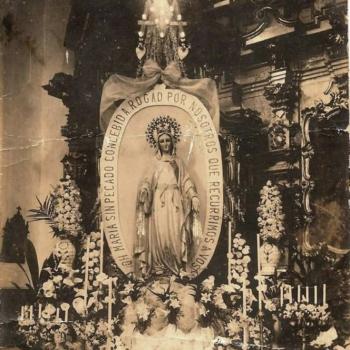Analyzing what he describes as "Kodak's Long, Slow Slide," The Wall Street Journal's John Bussey writes,
Was it a failure of imagination? Was it entrenched convictions and provincial thinking? Was it one restructuring too far? For Kodak - -perhaps the iconic American brand of the 20th century—it was all those things. . . . When a company starts to sell its intellectual property, hacking off an arm here and a leg there, you know the end is near.
I am old enough to remember Brownie Cameras, Instamatics, and rolls of 35 millimeter film in those famous yellow boxes. This is a company that did not just produce products that preserved personal and historical experiences. It branded them as "Kodak Moments." So, it's hard to believe it's all going away. But it is.
There are lessons to be learned here that have application far beyond Eastman Park in Rochester, New York. According to Steve Hamm and William Symonds, there are five lessons to learn:
One, don't let a ruling elite and a closed culture cut you off from criticism and contributions from outside.
George Eastman was an extraordinary innovator and a life force at Kodak for decades. Unlike some other entrenched leaders, one could argue that he was such an asset to the company that he rightly dominated the firm that he created.
But his dominance also fostered a culture that foreclosed on criticism and contributions beyond the executive office in Rochester, New York. Antonio Perez, Kodak's current CEO, complained that the situation was so bad that he could not even get people to differ with him on his assessment of the weather.
Some time ago I asked a bishop when he thought that the church might begin to have strategic conversations about theological education and the needs of the church. Without hesitating, he responded, "We don't have strategic conversations and there is no way to get an issue in front of the church's leadership."
One surmises that another closed culture and ruling elite deluded the leadership of the Roman Catholic Church into thinking that it could handle sexual abuse cases behind closed doors. The result, of course, is that the church endangered thousands of others and encountered a predictable and richly deserved firestorm of criticism.
There are good practical and spiritual reasons for breaking down entrenched cultures that resist criticism—particularly in the church.
A second engine of Kodak's demise was its own success—and the corporate conceit that followed hard on its heels.
There are a lot of business enterprises out there and innumerable products. But it is a rare thing for a company to brand not just a product, but also an aspect of our lives. "A Kodak Moment" became not just the moment in which you reached for a Brownie or an Instamatic. It became a way of describing a memorable or important experience.
That's quite an achievement. But it's seductive as well. It is not just hard for those of us who grew up with Kodak to imagine that it is going to disappear from the American landscape. It was hard for Kodak to imagine. And because Kodak couldn't grasp its own mortality, the company fueled its own demise.
That really should not have been news at Kodak. But it is the same conceit that you can hear in the phrase, "Too big to fail." History is littered with empires and institutions that clearly illustrate that nothing is too big to fail. But in the moment there is nothing like conceit to hide that fact from us.
Those of us who occupy churches that branded the Christian experience should take note. None of us are too big to fail. In fact, a lot of us are well on our way to doing just that. There is nothing about what we have done or accomplished that can't one day be captured in a footnote describing something that happened a long time ago and far away.
The third problem at Kodak was that when the company finally did recognize the need to change, it chose the wrong kind of innovation.
When Kodak discovered that the film business would no longer sustain them, they announced in 2000 that they were going into the digital camera business. Contrary to predictions, they actually succeeded in selling no small number of them. In fact, by 2005 they had moved to the number one position in the sale of digital cameras. Unfortunately, the profit margin on digital cameras is so small that their achievement could not sustain the company.





